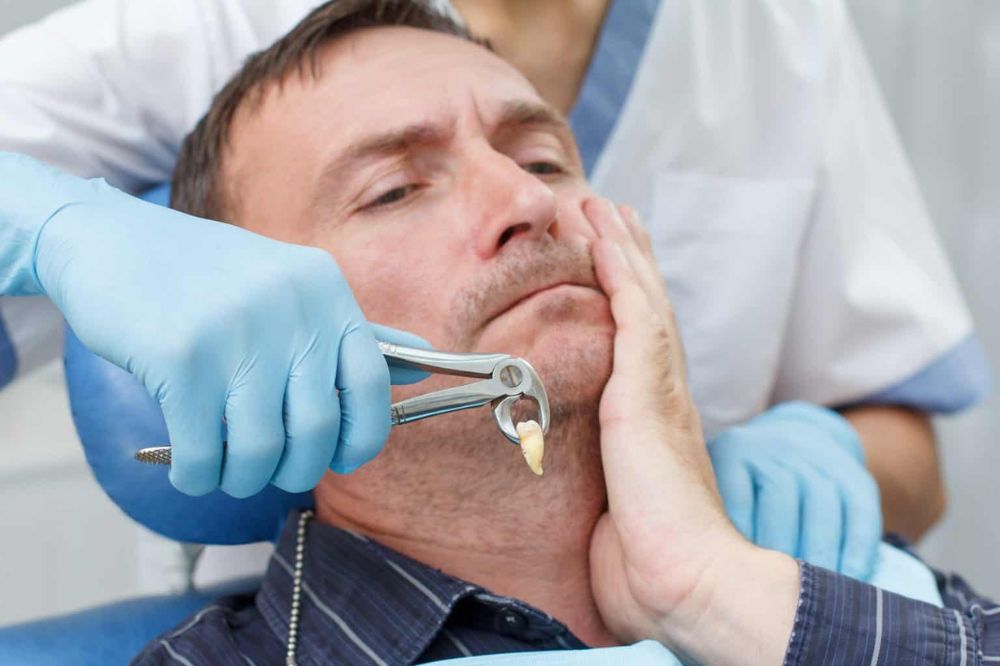Tooth extraction is a common dental procedure that may be needed when a tooth is damaged, infected, or causes problems with other teeth. While most extractions are safe and successful, like any medical or dental treatment, there can be risks or complications. Knowing these risks can help patients understand what to expect and how to take care of their mouth after tooth extractions in SW Calgary is essential.
This guide explains the possible issues that may occur and how your dentist can help prevent or manage them.
Common Risks After Tooth Removal
1. Swelling and Pain
Slight pain and swelling are normal after extraction. The gums and tissues around the area may be tender for a couple of days. The pain usually gets better with pain medication, resting, and applying ice packs.
2. Bleeding
Some bleeding after the procedure is to be expected. However, if the bleeding will not subside even when pressure has been applied with gauze, it might need to be controlled. A dentist in SW Calgary will inform you what to do about it.
3. Infection
The extraction site is open tissue, and therefore, bacteria can penetrate. This may lead to redness, swelling, bad taste, or fever. Dentists might prescribe antibiotics to reduce this possibility, particularly in patients with medical histories.
4. Dry Socket
Dry socket is one of the most frequent complications. This occurs when the blood clot that happens in the vacant tooth hole is lost prematurely or does not occur at all. When there is no clot, the nerve and the bone are exposed, and this leads to excruciating pain. A dentist can treat this by cleaning the area and placing a medicated dressing.
5. Nerve Injury
In a few instances, particularly at the time of wisdom tooth extraction, neighbouring nerves can be involved. This results in numbness or tingling of the chin, tongue, or lips. Most of the time, this improves with healing, but sometimes it may last longer.
6. Sinus Problems
For the molar teeth or top teeth, the sinus can be exposed. The reason is that the roots of the top teeth are very near the sinus chamber. If this is the case, the dentist can provide special care or additional treatment.
Table: Common Risks and Their Usual Treatments
| Complication | What Happens | How It Is Managed |
| Pain & Swelling | Soreness after extraction | Pain medicine, rest, ice packs |
| Bleeding | Prolonged bleeding from socket | Pressure with gauze, dentist check |
| Infection | Redness, swelling, fever | Antibiotics, cleaning the area |
| Dry Socket | Loss of blood clot, severe pain | Medicated dressing, follow-up care |
| Nerve Injury | Numbness or tingling | Observation, further treatment if needed |
| Sinus Exposure | Opening into sinus cavity | Special instructions, possible surgery |
Risk Factors That Increase Complications
Not everybody is equally at risk after tooth extractions near you. Some patients are more at risk for complications.
- Smoking – Slows healing and increases the chance of dry socket.
- Poor Oral Hygiene – Poor oral hygiene provides a breeding ground for bacteria, leading to infection.
- Medical Conditions – Such as diabetes, heart disease, or weak immunity.
- Medications – For example, blood thinners may cause a greater volume of bleeding.
How Dentists Reduce the Risks
Your dentist will make a number of efforts to reduce your risk of problems:
- Knowing the full medical history before the procedure.
- Uses modern techniques and sterile instruments.
- Provides clear and written instructions for aftercare.
- Prescribes medication where appropriate.
If you ever need emergency tooth removal services, the best way to reduce the chances of complications is to see a qualified dentist as soon as it’s possible.
When to Call Your Dentist
Following your tooth removal procedure, you need to assess your healing. You should contact your dentist near you if you notice any of the following potential warning signs:
- Uncontrollable bleeding for several hours.
- Severe or increasing pain unrelieved by prescribed medications or painkillers.
- Swelling that does not improve after 2-3 days.
- Presence of pus, bad taste, or foul smell from the extraction site.
- Fever or chills.
- Persistent numbness.
Prompt treatment will help address the issue early on and prevent further problems.
Get Quick, Safe, and Gentle Tooth Extraction at Trinity Hills Dental!
At Trinity Hills Dental, we offer safe and gentle tooth extractions to keep your mouth healthy. Our team uses modern methods and takes the right steps to make the process as simple and comfortable as possible. Whether you have a damaged tooth or one causing pain, we are here for you. Book your appointment today!

